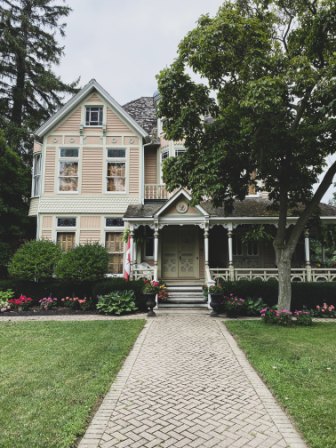What documents are needed to buy a house in Canada as a non-resident?
 Buying a house in Canada as a non-resident is a significant decision, and it comes with a specific set of requirements and documents. Non-resident buyers are individuals who do not hold Canadian citizenship or permanent resident status. If you fall into this category and are considering purchasing a property in Canada, here’s a comprehensive overview of the documents you’ll need:
Buying a house in Canada as a non-resident is a significant decision, and it comes with a specific set of requirements and documents. Non-resident buyers are individuals who do not hold Canadian citizenship or permanent resident status. If you fall into this category and are considering purchasing a property in Canada, here’s a comprehensive overview of the documents you’ll need:
1. Passport. As a non-resident, you’ll need a valid passport from your home country for identification purposes throughout the buying process.
2. Canadian Bank Account. You’ll typically need a Canadian bank account to facilitate financial transactions related to the property purchase. This account is crucial for transferring funds for the down payment, closing costs, and ongoing mortgage payments.
3. Proof of Income. Non-resident buyers need to provide documentation that demonstrates their ability to cover the costs associated with buying and maintaining a property in Canada. This may include pay stubs, employment contracts, or income statements from your home country.

4. Mortgage Pre-Approval. Just like Canadian residents, non-resident buyers often require mortgage financing. Lenders will need to evaluate your financial stability, so you’ll need to provide proof of income and undergo a credit check to secure mortgage pre-approval.
5. Real Estate Contract. A real estate contract is a crucial document that outlines the terms and conditions of the property sale. It includes details such as the purchase price, deposit amount, closing date, and any special conditions or contingencies.
6. Property Inspection Report. While not mandatory, it’s highly advisable to get a property inspection report. This document assesses the property’s condition and can help you identify any potential issues before finalizing the purchase.
7. Down Payment Proof. Non-resident buyers must provide proof of their down payment, which can come from personal savings or other legitimate sources. This proof is necessary to secure mortgage financing.
8. Legal Representation. Engaging a Canadian lawyer or notary is essential for the legal aspects of the transaction. They will prepare and review documents such as the deed of sale and ensure that the property’s transfer complies with Canadian law.
9. Title Search and Title Insurance. Like Canadian residents, non-resident buyers should conduct a title search to verify the property’s legal ownership and any encumbrances. Title insurance is advisable to protect against potential title issues in the future.
10. Land Transfer Tax Documents. Depending on the province or territory in which you’re buying, you may be required to pay a land transfer tax. The necessary forms and payments for this tax will need to be completed.
11. Proof of Insurance. Mortgage lenders will typically require proof of home insurance, which protects their investment. You’ll need to have insurance coverage in place before the closing date.
Buying a house in Canada as a non-resident involves navigating the country’s real estate regulations, financial requirements, and legal procedures. Working with experienced professionals, such as real estate agents, mortgage brokers, and legal advisors, can help you understand and meet the necessary document and legal requirements to make your Canadian property purchase a successful and legally sound endeavor.
